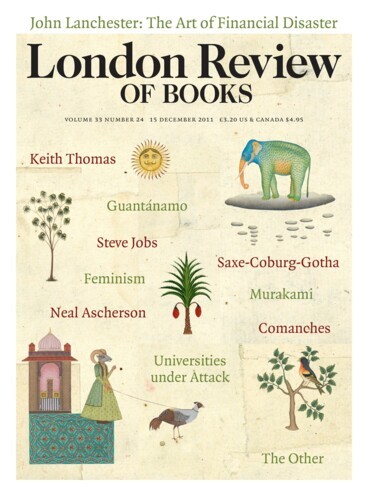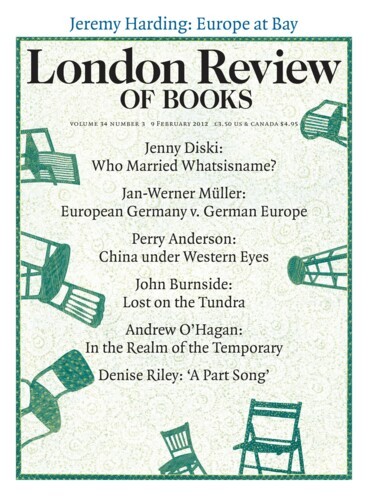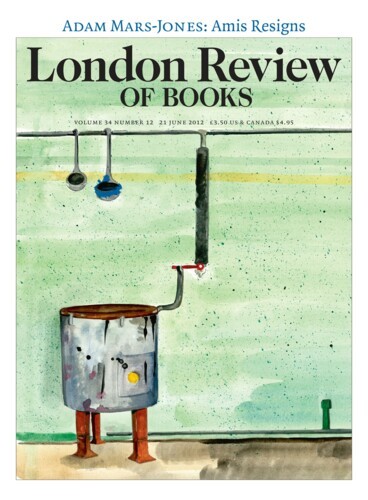Richard J. Evans
Richard J. Evans is Regius Professor Emeritus of History at Cambridge and a former president of Wolfson College. He is the author of numerous books, including The Pursuit of Power: Europe 1815-1914, Eric Hobsbawm: A Life in History and a three-volume history of the Third Reich.
Into Dust: Nazis 1945
Richard J. Evans, 8 September 2011
Why did the Germans keep on fighting to the bitter end in 1945, long after it was clear to almost everybody that the war was lost? From the catastrophic defeat of the Sixth Army at Stalingrad early in 1943, through the devastating Allied bombing raids on Hamburg in the summer of 1943, reports on popular opinion filed by secret agents of the Nazi regime record a growing belief that Germany was...
Spot and Sink: The End of WW1
Richard J. Evans, 15 December 2011
In November 1918, after more than four years in the trenches, Adolf Hitler was in hospital away from the front, temporarily blinded by a gas attack. As he was recovering, he was told of Germany’s surrender and the overthrow of the kaiser. ‘Again,’ he later wrote, ‘everything went black before my eyes.’
And so it had all been in vain. In vain all the sacrifices...
Gruesomeness is my policy: German Colonialism
Richard J. Evans, 9 February 2012
Dotted around the world, there are still a few reminders of the fact that, between the 1880s and the First World War, Germany, like other major European powers, possessed an overseas colonial empire. If you go to Windhoek in Namibia, you can still pick up a copy of the Allgemeine Zeitung, a newspaper which caters for the remaining German-speaking residents of the town. If you fancy a trip to...
Nothing They Wouldn’t Do: Krupp
Richard J. Evans, 21 June 2012
‘Of all the names which have become associated with the Nuremberg Trials,’ declared the prosecutor at the proceedings intended to bring the surviving Nazi leaders to justice at the end of the Second World War, ‘I suppose that none has been a household name for so many decades – indeed for nearly a century – as that of Krupp.’ Its history, the indictment...
Podcasts & Videos
Anthony Wilks's film traces the connections between the events of Eric Hobsbawm’s life and the history he told, from his teenage years in Germany and his communist membership, to the jazz clubs of 1950s...
From Cholera to Coronavirus
David Runciman and Richard J. Evans
David talks to the historian Richard J. Evans about the history of cholera epidemics in the 19th century and what they can teach us for today.
Pieces about Richard J. Evans in the LRB
I want to love it: What on earth was he doing?
Susan Pedersen, 18 April 2019
Was Eric Hobsbawm interested in himself? Not, I think, so very much. He had a more than healthy ego and enough self-knowledge to admit it, but all his curiosity was turned outward.
Echoes from the Far Side: The European Age
James Sheehan, 19 October 2017
Max Weber defined power as ‘the ability of an individual or group to achieve their own goals or aims when others are trying to prevent them from realising them’. The pursuit of...
Breathtaking Co-ordination: Hitler’s Wartime Economy
Jonathan Wright, 19 July 2007
Richard Evans’s history of the Third Reich – it will be completed by a third volume covering the war – is an invaluable work of synthesis. The mass of specialist studies we now...
Laid Down by Ranke: defending history
Peter Ghosh, 15 October 1998
Richard Evans hopes that this book will take the place of E.H. Carr’s What is History? and G.R. Elton’s The Practice of History as the ‘basic introduction’ to history as...
Axeman as Ballroom Dancer
David Blackbourn, 17 July 1997
In future times people will look back on the death penalty as a piece of barbarity just as we now look back on torture.’ These confident words were spoken by a member of the 1848 Frankfurt...
Germans and the German Past
J.P. Stern, 21 December 1989
The ‘white years’ of German history – the period between the end of the war and Adenauer’s first government of 1949 – were notable for two blank spaces in the...
Disease and the Marketplace
Roy Porter, 26 November 1987
In mid-August 1892, Hamburg was basking in a heatwave. Workers splashed around in the River Elbe, which reached an almost unprecedented 70°F. Then people started to go down with intestinal...
Read anywhere with the London Review of Books app, available now from the App Store for Apple devices, Google Play for Android devices and Amazon for your Kindle Fire.
Sign up to our newsletter
For highlights from the latest issue, our archive and the blog, as well as news, events and exclusive promotions.





